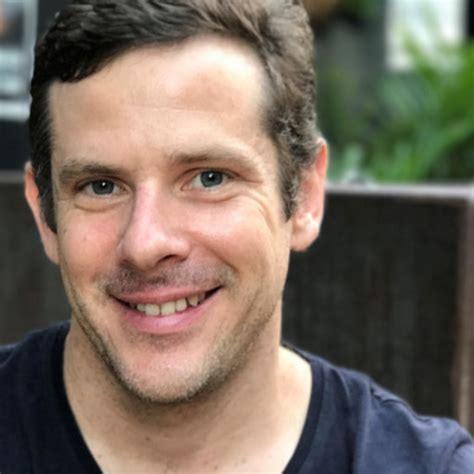A Quote by Carl Hart
Our ability to study the brain has been limited because of our tools and our tools have only allowed us to look at one neurotransmitter and we haven't looked so much into co-localization and co-release of transmitters. Our thinking is hampered by our tools.
Related Quotes
I think that human beings have gotten as far as we've gotten because of our adaptability, our ability to adapt, and our ability to dovetail our technologies - our brains to our tools. With the Industrial Revolution, we transcended the limits of our muscles. With the digital revolution, we transcend the limits of our minds.
We humans have indeed always been adept at dovetailing our minds and skills to the shape of our current tools and aids. But when those tools and aids start dovetailing back - when our technologies actively, automatically, and continually tailor themselves to us, just as we do to them - then the line between tool and user becomes flimsy indeed.
There is a race between the increasing complexity of the systems we build and our ability to develop intellectual tools for understanding their complexity. If the race is won by our tools, then systems will eventually become easier to use and more reliable. If not, they will continue to become harder to use and less reliable for all but a relatively small set of common tasks. Given how hard thinking is, if those intellectual tools are to succeed, they will have to substitute calculation for thought.
Most of us who become experimental physicists do so for two reasons; we love the tools of physics because to us they have intrinsic beauty, and we dream of finding new secrets of nature as important and as exciting as those uncovered by our scientific heroes. But we walk a narrow path with pitfalls on either side. If we spend all our time developing equipment, we risk the appellation of "plumber," and if we merely use the tools developed by others, we risk the censure of our peers for being parasitic.
Realizing that our minds control our bodies while our bodies reflect our minds amounts to understanding the most fundamental aspects of ourselves. It further equals a comprehension of the relationship between our "tools." And since the mind and body are interrelated, this understanding makes it easier to see why coordinating them is a practical way of using these tools to greatest effect-a way of using the mind and body to live our lives as art.
We have always dovetailed our cognition to our tools, but when our tools start dovetailing back, where do I end and where does the tool begin? It is going to be a really Twilight Zonish situation. It is definitely interesting. Once Google is in a blood cell sized device in our brain, do we become part Google? There are certainly interesting things to think about and provocative questions, but I don't think those provocative questions are going to do anything to slow down the onset of these technologies arriving and becoming even more pervasive.
Technology sometimes gets a bad rap because of certain consequences that it's had on the environment and unforeseen problems, but we shouldn't use it as an excuse to reject our tools; rather, we should decide that we need to make better tools to solve the problems caused by the initial tools in a progressive wave of innovation.
I am dedicating the majority of my wealth to improving education. It is the key to the survival of the human race. We have to plan for our collective future - and the first step begins with the social, emotional, and intellectual tools we provide to our children. As humans, our greatest tool for survival is our ability to think and to adapt - as educators, storytellers, and communicators our responsibility is to continue to do so.
































